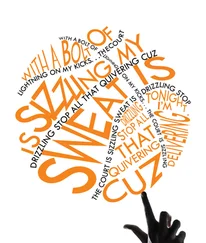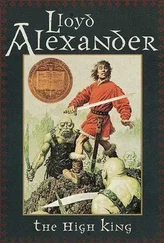At first I was numb and unsure what to do. How much could I tell the Americans who held me? Who would believe me if I told them I killed Hitler?
My wedding ring was the talk of the camp.
The Major who took it off my finger whistled when he saw the inscription. Soon I was in front of a sour-faced General who had little patience for “Nazi scum,” as he put it. All of this I learned through the German interpreter. I broke down and told him everything—how I came to be a taster through my stay with Aunt Reina and Uncle Willy, how Karl Weber shared information about the Party that changed my life. I told him of the bomb plot, how Karl sacrificed himself to end the horror ensnaring our country. I even gave him details about my rape by Russian soldiers and my final days in Berlin. I left out one detail about my stay in the bunker—the murder I committed. History would be better for not knowing.
Other Americans wanted to question me, too, and made a strong case for it by citing my familiarity with the Berghof. A few weeks after my “arrest” at Magdeburg, I was picked up by a Lieutenant Colonel in the U.S. Army and transported to a camp near Munich called Dachau. I spent several days there answering questions from American authorities. Spring was in full bloom now and the days were pleasant, but the presence of death hung over the camp like a shroud. There were rumors among those being held of a “massacre” by the Americans of German guards. Everyone feared they would be lined up against a wall to receive a similar fate. The noxious odor of rot lingered over the camp. It hadn’t been that long since the prisoners who died here had been buried.
I sat in a room with a military policeman, an interrogation officer and a young soldier who was a typist. The officer, who spoke perfect German as well as English, lit cigarettes one after the other while the typist puffed during breaks in my testimony. The smoke drifted through the room in a checkered haze. They wanted to know about the layout of the Berghof, who was there, how much information I was privy to and what Hitler did on a day-to-day basis. I answered their questions as best I could.
Apparently, my “closeness” to Hitler made me somewhat of a celebrity. The interrogation officer had taken my stated wish to end Hitler’s life, and Karl’s collaboration with the bomb plotters, as amusing sidebars in a worldwide story filled with tragedy. Such admissions didn’t “cut the mustard” with him. There were too many lies being told, he said, too many to sort out.
I lived in a large barracks with other women prisoners of war. In a way, it reminded me of Bromberg-Ost, only with better food and a nice view of the surrounding scenery, and, except for the rumors, no clear threat of death or mistreatment. I was a model prisoner and soon the American soldiers and guards took a liking to me. They smiled and laughed when we talked, even though there was a strict nonfraternization order between soldiers and German nationals. The Allies wanted to ferret out the Nazi criminals from the populace at all costs. Being a friend to a German woman was forbidden.
In mid-June, the interrogating officer came to me one morning. “We’re going on a trip,” he said. “I think you’ll enjoy getting out.”
I was suspicious, but any chance to leave the camp was a relief, even though conditions there were better than in most German cities.
“Where are we going?” I asked as I grabbed my jacket.
“Berchtesgaden,” he replied.
My heart jumped and then sank in my chest. Where was he taking me? I thought of my aunt and uncle and wondered if they had made it through the war. I had not spoken to them in years, yet I dared not ask the officer to take me to their home.
The officer escorted me to a jeep driven by a military policeman. I sat in the seat next to the MP while the officer relaxed and smoked in the back. The day was luminous and the spring clouds whisked by overhead. The sun warmed me and, for the first time in months, I felt like a human being, despite my incarceration.
The driver turned the jeep south and we sped down the road. Sometimes we were blocked by troop convoys or had to cut across fields because of damaged roads. At one point when the going was particularly slow, the officer leaned forward and said, “British army intelligence has corroborated your testimony to us. We know a great deal about you.” He smiled and then leaned back in his seat. I wondered why he had told me this.
We entered the northern edge of the Alps and then turned toward Berchtesgaden. The memories of my stay here came flooding back to me. We traveled on roads scarred by war, and I instinctively knew where we were headed. Soon the Berghof appeared high above us. I could tell it was different; it was no longer the white, pristine structure I remembered. We drove past the guardhouse, now occupied by American soldiers. The driver parked the jeep and we walked up the pitted driveway. The blasted face of Hitler’s mountain retreat came into view. Bomb craters scarred the ground; the trees had been stripped bare by the blasts. We turned the corner near the naked linden tree given to Hitler by Bormann.
The gigantic window, part of the Great Hall, where my wedding was held, looked out on the landscape like a great hollow eye. A GI stood outlined in its frame, a lonely sentry admiring the view to the north. The roof had been blown off, the wood burned in a massive fire, the masonry blackened by the blaze. The east wing, which had contained my quarters and the kitchen, lay in jumbled ruins from a direct hit.
Stunned by the destruction, I stood near the stone staircase leading up to the Berghof. I felt no sadness, only regret at the waste Hitler had brought upon the land. He had walked these stairs so many times: getting into his car, welcoming foreign dignitaries, taking his daily walk to the Teahouse. Now the cracked steps, the blackened stones, were emblems of the defeated Reich.
The officer tapped my shoulder. “Tell me, Magda. What was it like here?”
His question opened a torrent of emotion like blood flowing from a deep cut. I took a steadying breath and started my story. We walked through the rooms still smelling of ashes and destruction, and I told him everything I remembered about the Berghof. Part of our tour included the tunnels where Hitler’s record collection lay untouched. Much of the Berghof had already been stripped bare by the conquering forces. Graffiti covered its walls, a reminder of man’s innate desire to trumpet his victories.
We spent several hours at the Berghof before we returned to the jeep. The MP took us to Berchtesgaden for lunch, where we ate American rations because the restaurants were dark and deserted. We sat in chairs outside the one that had served me before I went to the Reichsbund. There, my life had changed. I looked down the street and saw the façade of my aunt and uncle’s house. I didn’t want to bring up their names again.
“What are you looking at?” the officer asked.
I shook my head. “Nothing.”
“Your aunt and uncle’s home isn’t far from here. I’d like to talk to them as well.” He lit a cigarette and blew the smoke toward the street. “I’m sorry to surprise you like this, but we have our reasons.”
The wind, suddenly cold, gusted across our table and I buttoned my jacket.
“What do you want with them?” I asked. “They belonged to the Party, but my uncle is a policeman and minor bureaucrat. He’s had no direct contact with Hitler.”
The officer looked down at the table and then at me, his blue eyes hard and inquisitive. “Your aunt is a fervent supporter of fascist governments. We know that about her. We’d like you to ask her to tell us more about what happened here—regarding the Party.”
I looked away from him. “I doubt she will talk.”
Читать дальше












